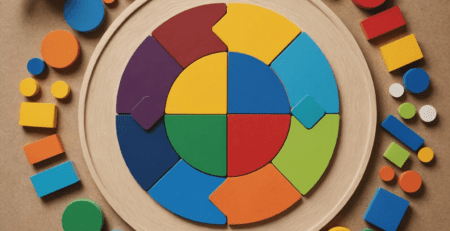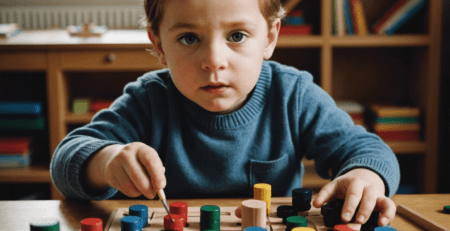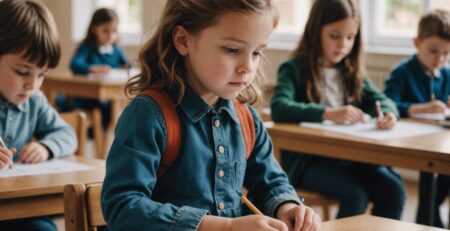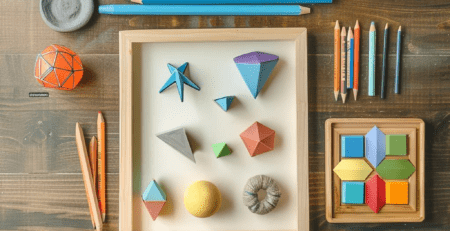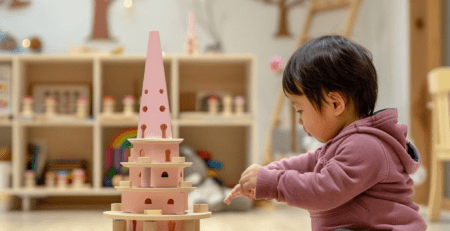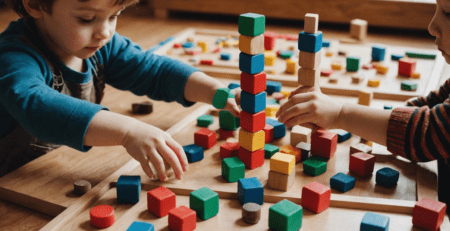
19
Montessori Principles: A Guide to Effective Education
Step into the classroom of a Montessori school and you’ll immediately notice a different approach to education. The Montessori method, based on the principles developed by Maria Montessori, emphasizes independence, freedom within limits, and a holistic view of child development. In this article, we will explore the fundamental principles of the Montessori approach and how they shape the educational experience for children around the world. From the carefully prepared environment to the focus on individualized learning, Montessori principles offer a unique perspective on education that continues to inspire educators and parents alike. Let’s delve into the world of Montessori and discover the core principles that guide this innovative approach to learning.
Table of Contents
- Montessori Principles: Creating a Prepared Environment
- Understanding the Role of the Montessori Teacher
- Fostering Independence and Self-Discipline in Children
- Emphasizing Hands-On Learning and Exploration
- Respecting the Individuality and Development of Each Child
- Q&A
- Final Thoughts
Montessori Principles: Creating a Prepared Environment
One of the key principles of the Montessori method is the concept of a prepared environment. This environment is carefully designed to facilitate a child’s learning and development, and it plays a crucial role in the Montessori approach to education.
Here are some key elements of creating a prepared environment in a Montessori classroom:
- Order and Organization: Everything in the classroom has a specific place and purpose, allowing children to develop a sense of order and responsibility.
- Freedom of Movement: The classroom layout and furniture are carefully chosen to enable children to move freely and explore their environment independently.
- Materials and Activities: The environment is equipped with specially designed Montessori materials that are accessible to children and support their natural learning process.
- Beauty and Nature: The classroom is aesthetically pleasing and incorporates elements of nature to create a peaceful and harmonious atmosphere.
By creating a prepared environment, Montessori educators aim to foster independence, creativity, and a love of learning in children. This principle is a fundamental aspect of the Montessori method and has a profound impact on the way children engage with their surroundings and develop essential skills.

Understanding the Role of the Montessori Teacher
At the heart of the Montessori method is the role of the teacher, who acts as a guide and facilitator in the child’s learning journey. Unlike traditional educators, Montessori teachers are trained to observe and understand each child’s unique needs and interests, creating a supportive environment that allows for self-directed learning. This approach values independence and encourages children to make choices, to explore, and to learn at their own pace.
The Montessori teacher plays a crucial role in creating a prepared environment that is designed to foster independence and creativity. By carefully selecting and arranging materials, the teacher encourages children to explore and discover for themselves. Instead of relying on textbooks and lectures, the teacher becomes a mentor who supports and guides the child, promoting curiosity and a love of learning. This approach allows children to develop critical thinking skills, problem-solving abilities, and a sense of responsibility for their own education.

Fostering Independence and Self-Discipline in Children
When it comes to raising independent and self-disciplined children, many parents turn to the Montessori principles. These principles, developed by Dr. Maria Montessori, focus on creating an environment that allows children to develop at their own pace and take responsibility for their learning. By following these principles, parents and educators can help children become independent thinkers and develop a strong sense of self-discipline.
One of the key aspects of the Montessori approach is the emphasis on freedom within limits. Children are given the freedom to choose their activities and work at their own pace, but within the structure of the prepared environment. This allows them to build independence and self-discipline as they learn to manage their time and make choices based on their interests and abilities. Additionally, the use of Montessori materials encourages children to explore and discover, fostering a sense of curiosity and self-motivation.
| Montessori Principles | Impact on Children |
|---|---|
| Freedom within limits | Develops independence and self-discipline |
| Montessori materials | Encourages curiosity and self-motivation |

Emphasizing Hands-On Learning and Exploration
- Sensory Development: Materials are designed to engage all the senses, allowing children to explore concepts through touch, sight, sound, and even smell.
- Active Engagement: Children are encouraged to actively participate in their learning, fostering a sense of curiosity and independence.
- Concrete Understanding: Hands-on experience with materials helps children develop a concrete understanding of abstract concepts, laying a strong foundation for future learning.
Respecting the Individuality and Development of Each Child
Montessori principles are founded on the belief that every child is a unique individual with their own pace of development. This approach emphasizes the importance of , recognizing that they have different interests, abilities, and learning styles.
In a Montessori environment, children are encouraged to explore their own interests and develop at their own pace. This means that the curriculum is tailored to meet the individual needs of each child, allowing them to learn and grow in a way that is best suited to them. By respecting the individuality of each child, the Montessori method fosters a sense of independence, self-confidence, and self-motivation, which are essential for their overall development.
Q&A
Q: What are the main principles of the Montessori method?
A: The Montessori method is based on principles such as respect for the child, individualized learning, and a focus on hands-on learning materials.
Q: How does the Montessori method promote independence in children?
A: The Montessori method promotes independence by providing children with the freedom to choose their own activities and allowing them to learn at their own pace.
Q: What role do teachers play in the Montessori classroom?
A: In a Montessori classroom, teachers act as guides and observers, offering support and guidance as needed while allowing children to explore and learn independently.
Q: How does the Montessori method approach education differently from traditional methods?
A: The Montessori method emphasizes the importance of self-directed learning, hands-on activities, and mixed-age classrooms, which are not commonly found in traditional education.
Q: How does the Montessori method incorporate a holistic approach to education?
A: The Montessori method focuses on the development of the whole child, including their physical, emotional, and cognitive well-being, through a wide range of activities and experiences.
Final Thoughts
In conclusion, the Montessori principles provide a unique and thought-provoking approach to education that focuses on the individual child’s development and growth. By promoting a hands-on, child-led learning environment, Montessori education seeks to cultivate independence, curiosity, and a love for learning. Whether you are a parent, educator, or simply curious about alternative education methods, exploring and implementing Montessori principles can open up a world of possibilities for the next generation. Embracing these principles can lead to a more enriched and fulfilling learning experience for children, ultimately shaping them into confident, self-directed, and compassionate individuals. So, let’s all consider how we can incorporate these principles into our own lives and work towards a more holistic and empowering educational system for our children.


